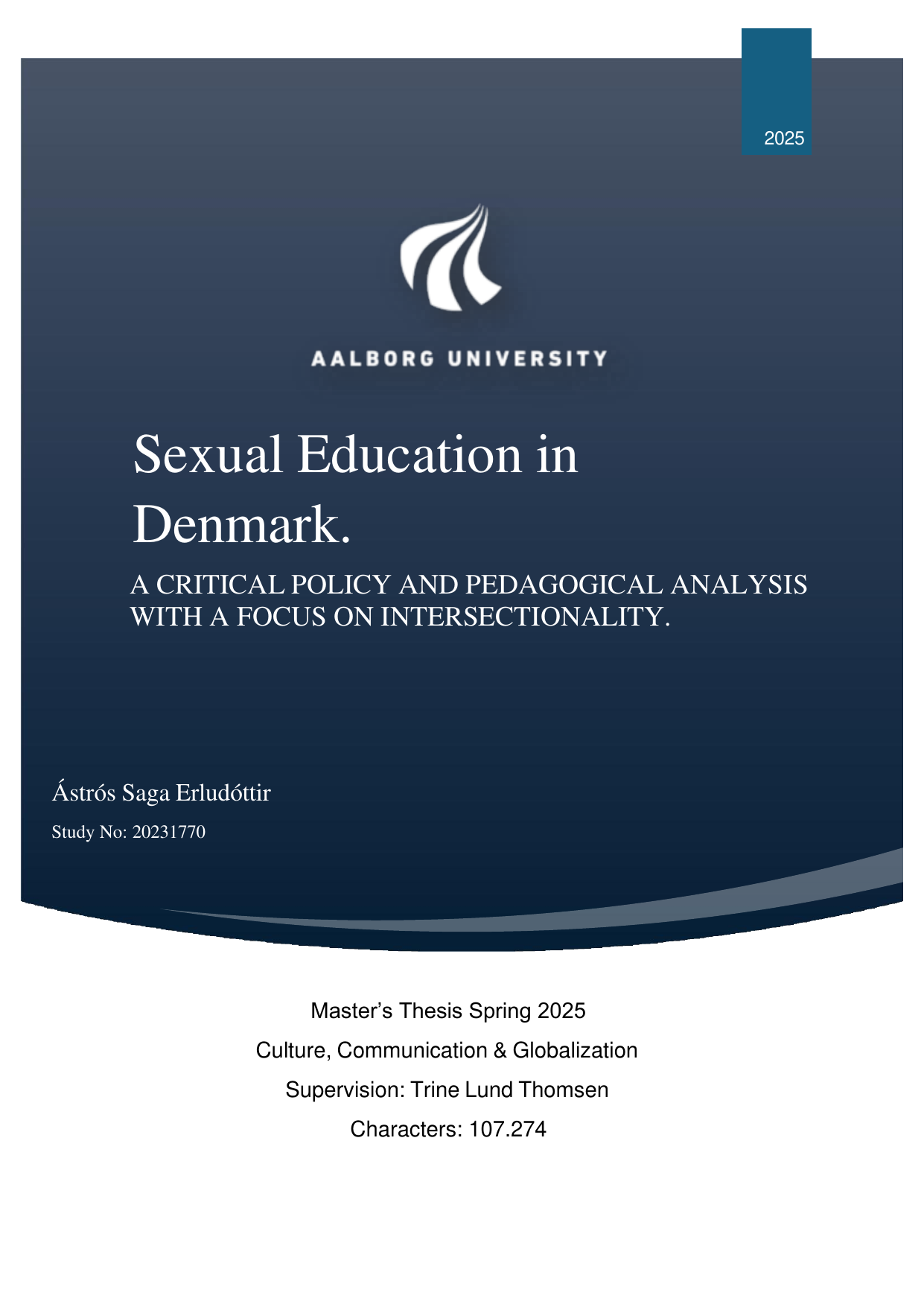
Sexual Education in Denmark - Critical Policy and Pedagogical Analysis With a Focus on Intersectionality.
Author
Term
4. term
Publication year
2025
Submitted on
2025-05-30
Pages
44
Abstract
This thesis offers a critical analysis of sex education in Denmark, with particular attention to how policies and teaching materials reproduce, challenge, or negotiate discourses of intersectionality and normativity. Drawing on a theoretical framework that integrates intersectionality (Crenshaw), norm-critical pedagogy (Bromseth & Darj; Simovska), and Gramscian hegemony, the study interrogates institutional practices through a qualitative, abductive research design. Using Critical Discourse Analysis (CDA) and Bacchi’s “What’s the Problem Represented to Be?” (WPR) approach, the analysis examines data from Danish and EU policy documents, NGO campaigns, a semi-structured interview with the youth-led teaching collective Sexualisterne, and fieldnotes from workshops conducted through the FIERCE project. Findings reveal that while Danish sex education is presented as progressive and inclusive, its policy and pedagogical frameworks continue to rely on normative assumptions about the student as white, cisgender, heterosexual, and able-bodied. Intersectionality is often invoked symbolically but rarely operationalized through binding mandates, teacher training, or structural support. NGO materials, especially those from Sex & Samfund, tend to reproduce neoliberal logics of individual responsibility and emotional self-regulation, often omitting structural dynamics such as racism, homophobia, or class-based exclusion. In contrast, initiatives such as Sexualisterne and Normstormerne embody norm-critical and intersectional pedagogies through dialogical, student-centered approaches that foreground marginalized perspectives. These efforts, however, remain structurally precarious, dependent on local funding, voluntary teacher interest, and the personal labor of young, often female, educators. The FIERCE workshops further highlight how youth respond to bystander dilemmas involving sexism and racism, revealing both hegemonic discourses and moments of resistance. The thesis argues that a structural realignment is needed to move from symbolic inclusion to substantive transformation. Recommendations include making sex education a standalone subject, institutionalizing intersectional content, mandating norm-critical teacher training, and ensuring national funding for grassroots initiatives. These reforms are presented not as technical solutions but as political commitments to recognition, equity, and educational justice. Situated within broader European debates on gender, democracy, and education, this study contributes to the fields of gender studies, critical pedagogy, and feminist policy analysis. It underscores the need for sex education that not only informs but transforms, recognizing students as situated agents and schools as spaces of both normalization and resistance.
Keywords
Gender studies ; Sex Education ; Denmark ; Policies ; Youth ; Health ; Intersectionality
Documents
